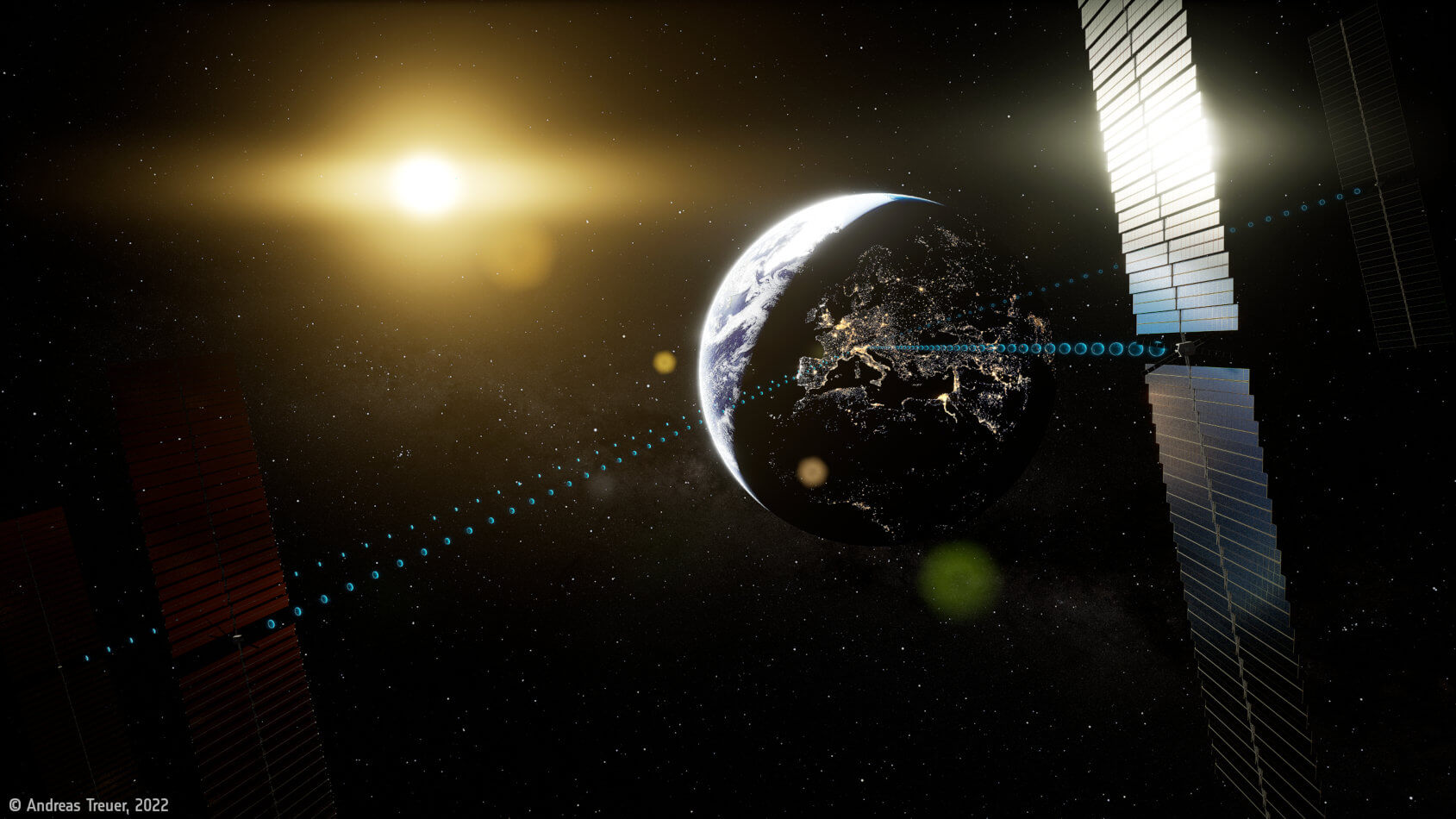The European Space Agency has chosen the Franco-Italian industrial company to lead the Solaris feasibility study, with a view to supplying large-scale clean energy from space.
An ambitious project within Europe's grasp
Through the Net-Zero initiative, launched in 2021 by the European Climate Foundation, Europe is aiming for neutrality in greenhouse gas emissions by 2050.
Among the solutions that could be adopted by the energy sector is space-based solar power, which appears to be clean, affordable, available worldwide, scalable and renewable.
With this in mind, the European Space Agency (which received the support of its Ministerial Council at the November 2022 meeting in Paris) entrusted a consortium formed around Thales Alenia Space with a feasibility study dubbed Solaris.
The aim is to study the viability of an ambitious project to operate solar power plants in orbit for Earth's clean energy needs, which would collect solar energy where it is available, never disrupted by weather conditions or darkness, before sending it to Earth without the need for major storage systems.
Various areas of expertise
New technologies, such as high-efficiency solar panels, wireless power transmission and robotized assembly in orbit, will thus be apprehended.
The various expertise required can be found within the consortium of European companies gathered around Thales Alenia Space : aviation (Dassault Aviation), strategy consulting (Arthur D. Little), orbital systems (Thales Alenia Space), and of course energy (Air Liquide, Enel and Engie).
If Solaris's studies prove conclusive, they could enable Europe to decide, by 2025, to embark on a program to commercialize space solar power, the first stage of which would be the design of a small demonstrator placed in orbit.
Such a program would make the Old Continent a key player, if not a leader, in the fight against man-made global warming, complementing terrestrial renewable energies.
.
Découvrez cet article sur Air&Cosmos

